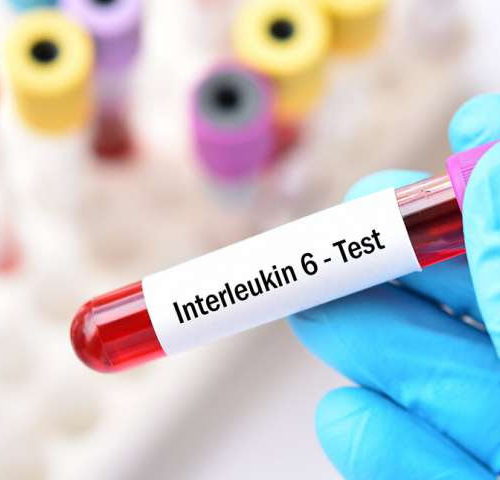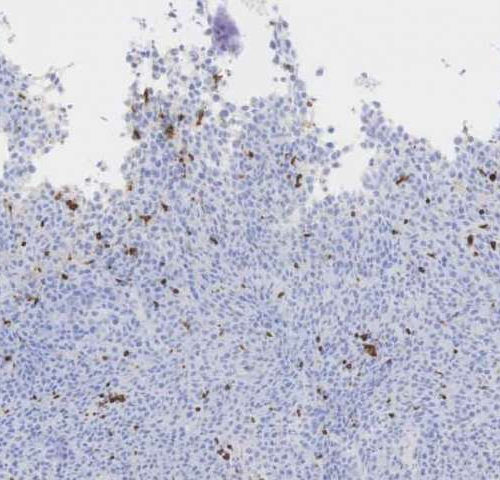by University of Tsukuba Using the body’s immune system to fight cancer has great potential, but can also bring serious side effects, including itchy and painful skin reactions. But now, researchers from Japan have found how these skin reactions happen, potentially leading to a way to prevent them. In a study published this month in Communications Biology, researchers from the University...
Tag: <span>Cancer Immunotherapy</span>
Study finds a common nutritional supplement might boost cancer immunotherapy
by Ludwig Institute for Cancer Research A Ludwig Cancer Research study has uncovered a mechanism by which the tumor’s harsh internal environment sabotages T lymphocytes, leading cellular agents of the anticancer immune response. Reported in Nature Immunology, the study describes how a variety of stressors prevalent in the tumor microenvironment disrupt the power generators, or mitochondria, of tumor-infiltrating T lymphocytes (TILs),...
Continuous dosing improves progression-free survival for melanoma patients with common mutations
by SWOG A first-of-its-kind randomized clinical trial offers strong and perhaps surprising evidence that a combination of two targeted melanoma drugs when given continuously keeps patients’ cancer from growing or spreading longer when compared with intermittent treatment, according to study results to be presented at the 2020 virtual annual meeting of the American Association for...
Designer probiotic treatment for cancer immunotherapy
by Columbia University School of Engineering and Applied Science Researchers at Columbia Engineering have engineered probiotics to safely deliver immunotherapies within tumors. These include nanobodies against two proven therapeutic targets—PD-L1 and CTLA-4. The drugs are continuously released by bacteria and continue to attack the tumor after just one dose, facilitating an immune response that ultimately...
Early immune response may improve cancer immunotherapies
by Natasha Wadlington, University of Illinois at Chicago In a paper published in the Journal of Biological Chemistry, University of Illinois at Chicago researchers and colleagues report a new mechanism for detecting foreign material during early immune responses. Viruses, bacteria and cancer have many ways to replicate and survive in our bodies. For viruses and...
Transition to exhaustion: Clues for cancer immunotherapy
Research on immune cells “exhausted” by chronic viral infection provides clues on how to refine cancer immunotherapy. The results are scheduled for publication in Immunity. Scientists at Emory Vaccine Center, led by Rafi Ahmed, Ph.D., have learned about exhausted CD8 T cells, based on studying mice with chronic viral infections. In the presence of persistent...
Researchers find protein promotes cancer, suppresses anti-tumor immunity
Targeting TBK1 in mice thwarts lung cancer development, frees immune response UNIVERSITY OF TEXAS M. D. ANDERSON CANCER CENTER HOUSTON — Researchers at The University of Texas MD Anderson Cancer Center have found that a protein involved in immune response to microbes also can fuel cancer development and suppress immune response to the disease. Working...
Clues to improve cancer immunotherapy revealed
Cancer immunotherapy drugs trigger the body’s immune system to attack tumors and have revolutionized the treatment of certain cancers, such as lymphoma, lung cancer, and melanoma. Yet, while some patients respond well to the drugs, others don’t respond at all. Cancer immunologists want to change that. A new study by researchers at Washington University School...
Sea snail compound reduces cancer risk
Potential for new drug to prevent colorectal cancer tumors FLINDERS UNIVERSITY The remarkable ability of a small Australian sea snail to produce a colourful purple compound to protect its eggs is proving even more remarkable for its potential in a new anti-cancer pharmaceutical. Researchers at Flinders University, Southern Cross University and Monash University in Australia have isolated one compound in the gland secretions from the...
Liver Damage More Common Due to Malignant Tumors than Cancer Immunotherapy Drug
Posted Yesterday Immunotherapy as a treatment for advanced solid organ tumors has rapidly evolved over the past decade, often yielding remarkable results. However, its use has also given way to new adverse effects, including drug-induced gastrointestinal and liver toxicities. “Checkpoint inhibitors are a game changer for a lot of oncology patients with previously untreatable tumors,” says Robert Fontana, M.D., University of Michigan’s medical...




